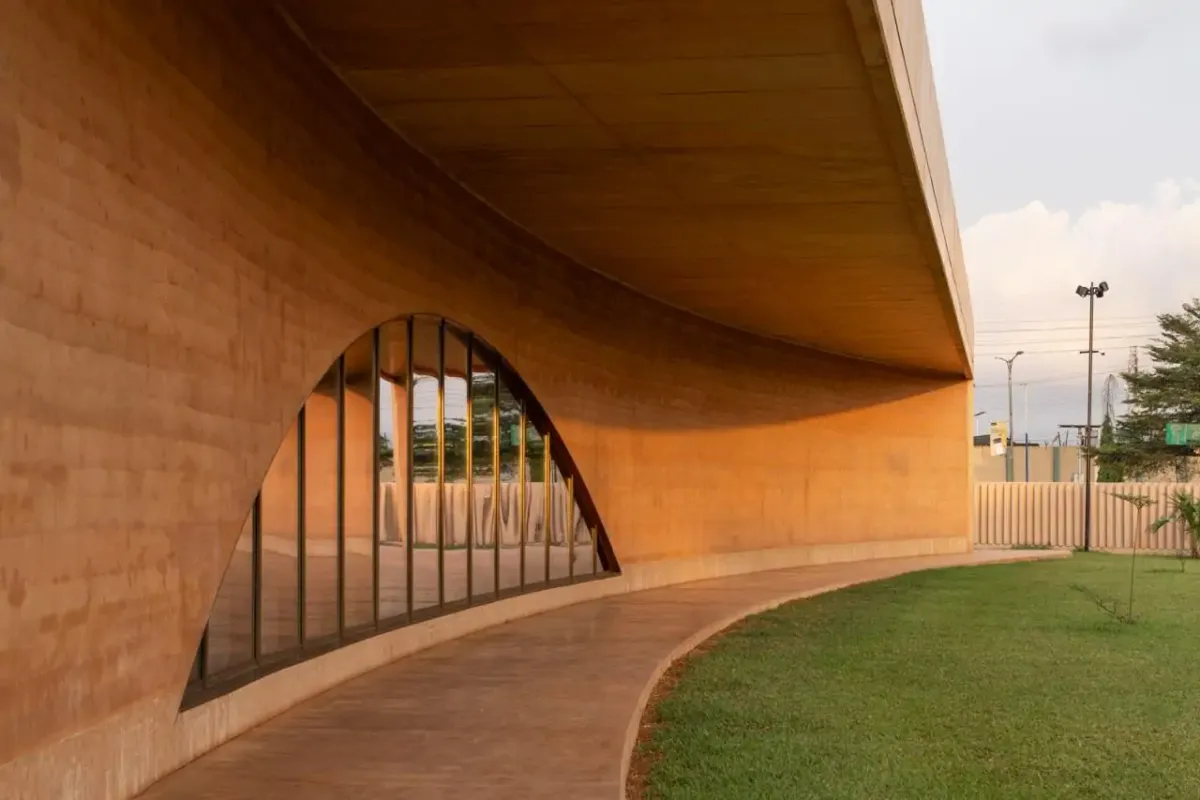
Protests erupted at the Museum of West African Art in Benin City, Nigeria, on Sunday, delaying previews ahead of the Tuesday opening of the long-anticipated museum, which was partially conceived as a home for the Benin Bronzes.
Videos shared to social media showed crowds surrounding the museum during a visit by European diplomats while chanting in support of the Oba of Benin, Ewuare II, and accusing the museum’s organizers of bypassing the royal authority and heritage institutions in its development.
The Oba is the traditional ruler of the Kingdom of Benin, which is now the Edo state in Nigeria. The Benin Bronzes were looted by British colonial military forces during a punitive campaign against Benin City in 1897. The kingdom was incorporated into Nigerian at independence in 1960, but the Oba remains the symbolic custodian of Edo culture.
The unrest follows years of tension between the Nigerian government, the Edo state government and the Oba’s royal court over who should hold authority over Benin’s returned artifacts.
What started as a collaboration to showcase repatriated treasures has split into two efforts—one backed by the state through MOWAA, and another led by the Oba, who plans to house the bronzes in a royal museum that has not yet been built.
After the protests, the spokesman for Edo’s new governor, Monday Okpebholo, issued a news release criticizing a “lack of transparency” by the administration of the previous Edo governor and aligning in principle with the Oba’s vision for housing the Benin Bronzes in a royal museum.
Okpebholo said that over the course of the development of a home for the Benin Bronzes, the project evolved from the Benin Royal Museum to the Edo Museum of West African Art and now to MOWAA “without clarity or consultation with our revered traditional institution,” referring to the Oba’s royal court.
He also said that his administration was never briefed on operational details including the project’s financial and ownership structure, and that even the Oba of Benin “had personally expressed concern over its handling.” He also condemned the demolition of a historic hospital that sat on MOWAA’s campus.
MOWAA responded with its own statement Monday, stating that the museum wished “to clarify misconceptions” about the museum’s mission and holdings. In it, the museum said it holds the Oba of Benin “in the highest esteem.”
“MOWAA does not hold, nor have we ever claimed title to any Benin Bronzes. Since our inception in 2020, the Museum has consistently affirmed that it has no claims to these artefacts,” the museum said.
“Our focus for the last four years has been firmly on broader West African art, research, education and conservation, with a strong focus on modern and contemporary, as well as historical works from Nigeria and beyond. There are no Benin Bronzes on display at the Museum, nor have there ever been.”
MOWAA also denied allegations that it had claimed or presented itself as the Benin Royal Museum in order to secure funding.
“We were saddened by the events of yesterday,” said Phillip Ihenacho, director of MOWAA. “But we hope this moment can lead to renewed dialogue, engagement and understanding, so that together we can realize the full potential of what MOWAA can represent for Nigeria and Africa at large.”
After the protest Sunday, the museum had said on social media that the demonstration “appeared to stem from disputes between the previous and current state administrations.”
“While MOWAA was mentioned in the wider context of these grievances—alongside other development projects—we wish to emphasize that MOWAA is an independent, non-profit institution, of which the former governor has no interest financial or otherwise,” it said.
“As a precaution, all guests were safely escorted to secure locations and supported in continuing their travels to hotels, airports, or other destinations in the city.”
The museum said it would cancel its preview events on Sunday, Monday and Tuesday.
Nigeria’s Culture Minister Hannatu Musa Musawa condemned the protest in a statement, stating that the disruption “endangers a treasured cultural asset” and “threatens the peaceful environment necessary for cultural exchange and the preservation of our artistic patrimony.”
“The Constitution guarantees fundamental freedoms; it also requires that those freedoms be exercised responsibly. No right extends to the destruction or desecration of national cultural assets,” Musawa said.
“We urge all parties to refrain from actions that escalate tensions. Disputes must be resolved through constructive dialogue, lawful channels and mutual respect rather than through destructive conduct.”
The unrest reflects a wider reckoning over cultural repatriation. At the recent G20 Culture Ministerial in South Africa, leaders urged governments to treat the return of looted heritage and investment in the arts as core national priorities.
